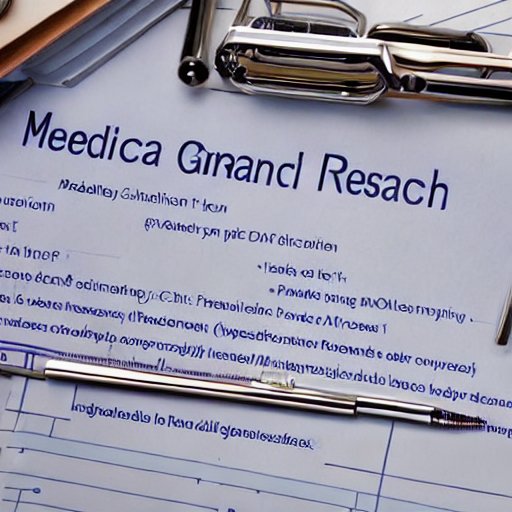Clinical trials are a critical aspect of the pharmaceutical and medical industry as they provide valuable information on the safety and efficacy of new medicines and treatments. Clinical trials also play a crucial role in the development of new medical technologies and therapies. The documentation generated during clinical trials is essential in ensuring the accuracy and reliability of the results.
In this article, we will explore the complexities of clinical trial documentation and why it is crucial to have accurate translations of these documents. The purpose of the article is to provide insight into the importance of clinical trial documentation and the role of medical translation services in ensuring the accuracy and reliability of clinical trial results.
Understanding Clinical Trials
Clinical trials are research studies that evaluate the safety and efficacy of new medicines, treatments, or medical devices in humans. They are designed to answer specific questions about the safety and effectiveness of the new therapy and to determine if it is more beneficial than the current standard of care. Clinical trials are conducted in several phases, including Phase I, Phase II, Phase III, and Phase IV.
Phase I trials are the first studies to involve human participants, and they are conducted to evaluate the safety and tolerance of a new therapy. Phase II trials involve a larger number of participants and are conducted to evaluate the efficacy of the therapy. Phase III trials are conducted on a larger scale, involving several hundred or thousands of participants, to provide more comprehensive data on the efficacy and safety of the therapy. Phase IV trials, also known as post-approval trials, are conducted after the therapy has been approved for use, to continue to monitor the long-term safety and efficacy of the therapy.
Clinical trials are important for the development of new medicines and treatments as they provide the data necessary to support their approval by regulatory bodies such as the FDA and the European Medicines Agency (EMA). The results of clinical trials also provide crucial information to healthcare providers, patients, and payers, who use this data to make informed decisions about the best course of treatment for their patients.
The Five Most Important Documents in Clinical Trials
Clinical trials are highly regulated and involve a large amount of documentation. It is essential to ensure that all necessary information is captured and documented correctly to ensure the safety and efficacy of the treatment being tested. The following are the five most important documents in clinical trials:
- Clinical Study Protocol
- Investigator’s Brochure
- Informed Consent Form
- Case Report Forms
- Study Monitoring Plan
Each of these documents plays a critical role in the clinical trial. The Clinical Study Protocol outlines the design, objectives, and methodology of the trial, while the Investigator’s Brochure provides a comprehensive overview of the trial, including information on the treatment being tested, the study design, and the potential risks and benefits. The Informed Consent Form is a crucial document that outlines the rights and responsibilities of the participants, while the Case Report Forms are used to document the results of the trial. The Study Monitoring Plan outlines the procedures for monitoring the trial and ensuring the safety of the participants.
What Makes Clinical Trials Complex
Clinical trials are complex due to a variety of reasons, including the need for strict regulatory compliance, the complexities of study design, and the diversity of patient populations. In addition, the nature of the treatments being tested can also make clinical trials complex, with treatments ranging from simple lifestyle modifications to highly sophisticated surgical procedures. The challenges associated with clinical trials can also arise from the need for effective communication and coordination between multiple stakeholders, including study sponsors, investigators, ethics committees, and regulatory authorities.
To ensure the success of a clinical trial, it is essential to have a thorough understanding of the complexities and challenges involved, as well as effective strategies to address these issues. This requires careful planning, effective communication, and a deep understanding of the regulatory requirements, study design, and patient populations involved.
The Top Challenges in Clinical Trials
Clinical trials are a crucial step in the development of new medicines, but they also come with a number of challenges that must be overcome. One of the biggest challenges facing clinicians today is ensuring the safety and well-being of trial participants. This requires careful monitoring and documentation of all aspects of the trial, including the administration of the medicine, the collection of data, and the management of any adverse events.
Another major challenge in clinical trials is ensuring the validity and reliability of the data collected. This requires strict adherence to protocols, careful documentation of all study procedures, and regular monitoring of the trial by independent data safety monitoring boards.
Finally, there are also the logistical and administrative challenges of conducting a clinical trial, such as recruiting and enrolling participants, managing the trial site, and coordinating with regulatory agencies.
Why Documentation is Important in Clinical Trials
Documentation plays a crucial role in ensuring the safety and efficacy of new medicines in clinical trials. By carefully documenting all aspects of the trial, including participant information, administration of the medicine, and data collection, clinical trial professionals can ensure that the results are valid and reliable.
Documentation also helps to monitor the trial for adverse events and to ensure that the trial is conducted in accordance with ethical and regulatory standards. This helps to build trust with participants, regulators, and the public, and to establish the safety and efficacy of the new medicine.
Furthermore, documentation is also important for maintaining the integrity of the trial and for future reference. Clinical trial data is used by regulatory agencies and scientific communities to make informed decisions about the approval and use of new medicines, and accurate documentation is essential to ensure that these decisions are based on accurate and reliable information.
Translation of Clinical Documents
When it comes to clinical trials, the translation of clinical documents is of utmost importance. This process involves taking the original documents written in one language and translating them into another language. The translation should be accurate and culturally appropriate so that the meaning is preserved and the information is easily understandable.
Medical translation services play a crucial role in clinical trials as they ensure that the information contained in the clinical documents is easily accessible to all parties involved, including patients, medical professionals, and regulatory bodies. The process of medical translation services involves working with professional and experienced medical translators who have specialized knowledge and skills in the medical field.
The importance of medical translation in clinical trials cannot be overstated. Accurate medical translation ensures that the information contained in the clinical documents is understood correctly, reducing the risk of miscommunication and misunderstandings. This can have a significant impact on the success of the clinical trial and the development of new medicines.
Furthermore, accurate medical translation can help to improve the overall quality of clinical trials. This includes ensuring the safety and efficacy of new medicines, ensuring that patients are fully informed about the risks and benefits of participating in a clinical trial, and ensuring that regulatory bodies have the necessary information to make informed decisions about the approval of new medicines.
The Importance of Medical Translation
Medical translation is essential in the healthcare industry as it ensures accurate communication between healthcare professionals and patients, especially in clinical trials. It also plays a critical role in ensuring the safety and efficacy of new medicines.
In clinical trials, the translation of clinical documents must be done with the utmost precision and accuracy. Inaccurate medical translation can lead to serious consequences such as miscommunication, incorrect dosages, and even harm to patients. It can also negatively impact the trial results and the approval process for new medicines.
Therefore, it is crucial to work with professional and experienced medical translators who have a deep understanding of medical terminology and the complexities of clinical trials. This ensures that the clinical trial documents are translated accurately and precisely, which is vital for the success of the trial and the development of new medicines.
The Importance of Clinical Trial Documentation Translation
The accuracy and quality of clinical trial documentation are essential to ensure that the results of the trial are reliable and meaningful. Clinical trial documentation typically includes study protocols, patient-informed consent forms, case report forms, and regulatory submissions. The translation of these documents must be precise and culturally adapted to the target language, as it plays a significant role in the success of a clinical trial.
Inaccurate translations can lead to serious consequences, such as miscommunication with patients or regulatory bodies, incorrect data collection and analysis, and ultimately, the failure of the trial. In some cases, inaccurate translations can also pose significant health risks to trial participants.
Having accurate and well-translated clinical trial documentation also helps to ensure that the results of the trial are accepted and trusted by regulatory bodies, medical professionals, and the general public. This can help to speed up the approval and implementation process of new treatments and medical interventions.
Conclusion
In conclusion, clinical trial documentation translation plays a vital role in the success of a clinical trial. Accurate and well-translated documentation helps to ensure the safety and efficacy of new medicines, as well as protect the rights of study participants. The process of translating clinical trial documents requires specialized knowledge and expertise, making it important to work with professional and experienced medical translators.
At Slavis Translations, we understand the complexities of clinical trial documentation and offer top-notch translation services to meet the needs of the industry. Our team of professional translators has extensive experience in the medical and scientific fields, ensuring that your clinical trial documentation is translated accurately and effectively. Contact us today to learn more about our services and how we can help support your clinical trial needs.




